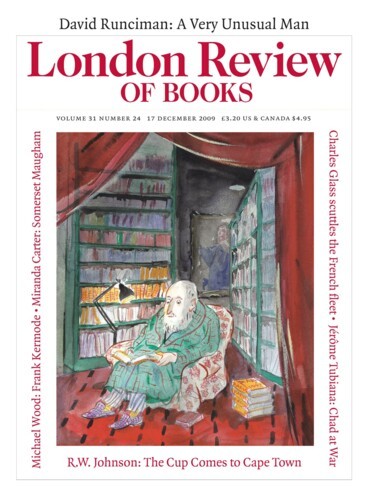Preacher on a Tank: Blair Drills Down
David Runciman, 7 October 2010
Tony Blair emerges from these memoirs as a man of extraordinary intellectual self-confidence. He likes to think for himself, and decide for himself, whatever the issue. He takes this to be one of the key attributes of leadership, and it is why he believes he was cut out for it while other people (you can guess who) were not. But he also puts it down to his training as a barrister at the hands of Derry Irvine, someone he describes as having ‘a brain the size of a melon’. From Irvine Blair learned the importance of what he calls ‘drilling down’ when faced with a seemingly intractable problem.





